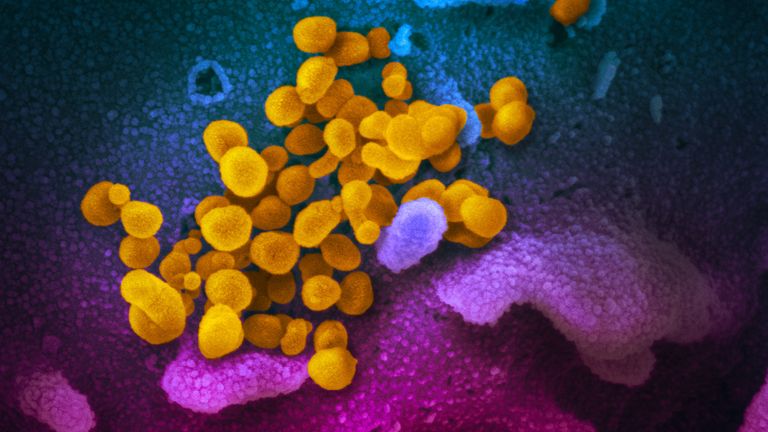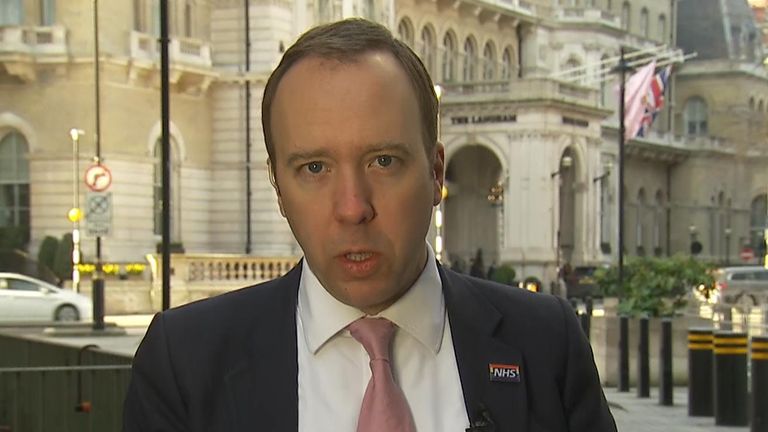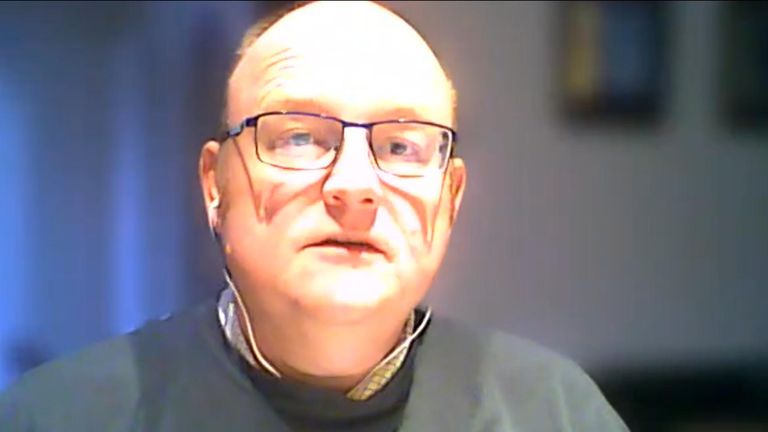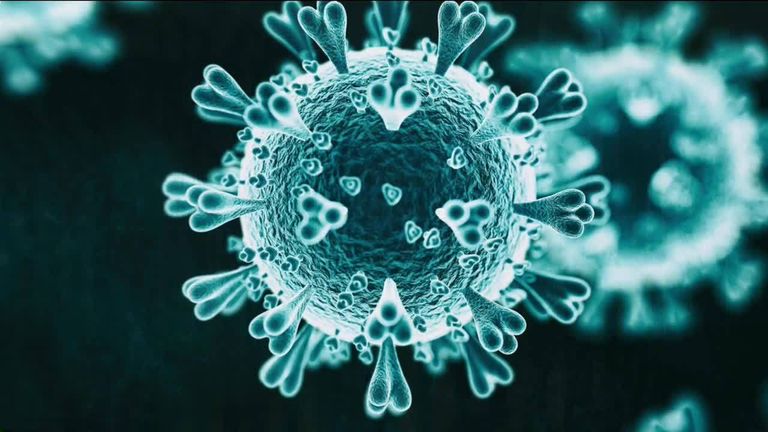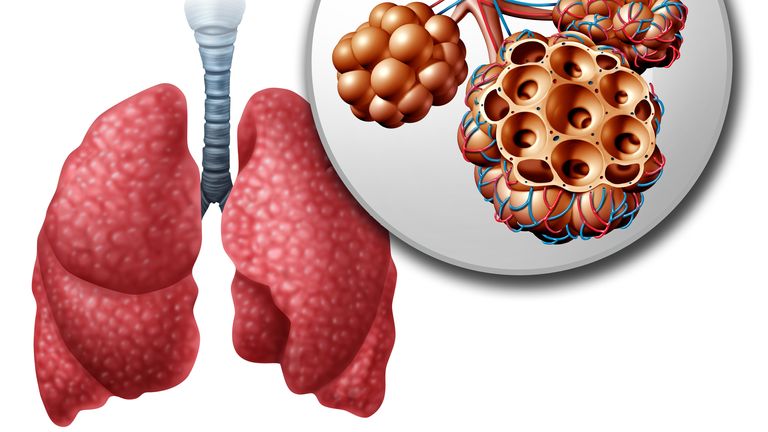https://m.youtube.com/watch?v=1QJ4_y58Aig
Coronavirus: How does COVID-19 attack the human body?
Experts say the disease's first port of call is the lungs and that it can also target the kidneys.
The most common signs that you may be infected with coronavirus are breathing problems, and that is because its first port of call is the lungs.
Just like the flu, coronaviruses are respiratory diseases and can spread when an infected patient coughs or sneezes, spraying small liquid droplets from their nose or mouth, which may contain the virus.
How coronavirus attacks cells in the lungs
Although just around two months old, experts are slowly discovering more about COVID-19, which appears to be attacking two specific sets of cells in the lungs, according to Professor Mark Fielder - a medical microbiologist at Kingston University.
Speaking to Sky News, he explains one is called a goblet cell and the other is called a ciliated cell.
He said: "A goblet cell produces mucus that makes a wet slimy layer on your respiratory tract, and that's important for helping you keep your lungs moist, which is needed to keep you healthy.
"The ciliated cells are cells that have little hairs on them that wave in an upward direction, so any nasty material that gets stuck in the mucus, such as bacteria and viruses, or particles of dust, gets swept up towards your throat.
"When you cough, you cough up mucus and swallow it and you dump that into the acid bath we call a stomach - that's the way things normally work."
But he says COVID-19 appears to be infecting those particular two sets of cells preferentially - "something that was seen similarly with SARS," he said.
SARS, or severe acute respiratory syndrome, also originated in China, and killed 774 people following the 2002-2003 outbreak, far less than the almost 3,000 killed by COVID-19.
Professor Fielder added: "The problem we've got here, is the virus infects these cells and starts to kill them.
"And as it kills them as part of its replication process, tissue falls into the lungs, and the lungs start to get blockages - and that blockage might mean that the patient develops pneumonia."
Immune system 'goes haywire' and can damage healthy tissue
He says there is an added problem in that the immune system tries to react because it recognises the body is under attack.
"It can actually almost over attack, and become what we call hyperimmune, and set up a large attack which can then start to damage the healthy tissue underneath."
Prof Fielder also claims the body's efforts to fight the virus can cause inflammation in the lungs, which can make breathing even more difficult.
It is also suggested that the immune system "goes haywire", causing even more damage to the organ and other parts of the tissue.
He said: "Once the virus has got into the pneumonic state in the lungs, it can start causing problems in the air sacs in the blood vessels in your lungs - commonly wrapped around the almost broccoli shaped organs in the lungs, called the alveoli.
"These are really important in normal breathing to help the body exchange carbon dioxide for oxygen under normal breathing, and these are very delicate, and can get damaged and limit your capability of oxygenating blood."
And he adds that it is not only the lungs that are attacked by the virus.
Coronavirus also attacks other important organs
COVID-19 can also target the kidneys - the two bean-shaped organs which filter toxins from our blood.
He says it they are not functioning properly, it could lead to organ failure and the patient "is going to struggle to hang on to life".
On Sunday, the WHO advised people over 60, or with underlying conditions, like cardiovascular disease, to avoid crowded places in an effort to reduce the chance of them catching COVID-19.
It is claimed the sick and elderly are most at risk from the disease.
Latest figures show there are more than 89,000 confirmed and suspected cases of the virus globally, according to Johns Hopkins University, which is tracking the epidemic.
Twelve new cases were diagnosed in England on Sunday, along with the first person in Scotland to be confirmed to have it, bringing the total number with COVID-19 in the UK to 36.
Health Secretary Matt Hancock has admitted it is "inevitable" the deadly virus would continue to spread.

